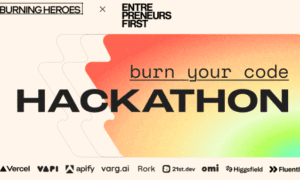In the ever-evolving landscape of technology, coding skills have become more valuable than ever before. Whether you’re a novice or an experienced developer, mastering the fundamentals of coding is essential for building a successful career. This guide will take you through the key aspects of building strong coding skills, providing insights, tips, and resources to help you navigate this journey.
Mastering the Fundamentals: A Guide to Building Strong Coding Skills
Coding is not just about writing lines of code; it’s about understanding the principles that underlie programming languages and being able to apply them creatively. Building strong coding skills requires dedication, practice, and a solid grasp of the foundational concepts. This guide will walk you through the process step by step, from grasping the basics to becoming proficient in advanced techniques.
The Importance of Strong Coding Skills
Having strong coding skills is like having a Swiss army knife for problem-solving. It empowers you to turn your ideas into reality and opens doors to a wide range of career opportunities. Whether you aspire to be a web developer, a software engineer, or even delve into data science, a strong foundation in coding is your stepping stone.
Understanding Programming Languages
Programming languages are the tools that allow developers to communicate with computers effectively. From Python to Java, each language has its syntax, semantics, and best use cases. Understanding programming languages deeply is akin to learning new languages; it broadens your horizons and lets you tackle diverse projects.
Setting Up Your Development Environment
Before embarking on your coding journey, it’s crucial to set up your development environment. This includes installing code editors, compilers, and other essential tools. With the right environment, you’ll find coding more seamless and enjoyable.
Learning the Basics: Variables, Data Types, and Operators
At the heart of coding lies the manipulation of data. Learning how to work with variables, understand data types, and use operators is fundamental. Variables store data, data types define the kind of data, and operators perform actions on that data. This trio forms the building blocks of coding.
Writing Clean and Readable Code
Imagine writing a novel without proper punctuation or paragraphs – it would be chaotic and hard to comprehend. Similarly, writing clean and readable code is imperative. Employing indentation, meaningful variable names, and comments helps you and others understand your code’s logic effortlessly.
Embracing Control Structures: If Statements and Loops
Control structures determine the flow of your code. ‘If’ statements help you make decisions, executing certain code if a condition is met. Loops, on the other hand, allow you to repeat code until a certain condition is no longer satisfied. Mastering these control structures empowers you to create dynamic and responsive programs.
Functions: The Building Blocks of Code
Functions are like recipes; they take inputs, process them, and produce outputs. They promote code modularity and reusability. Learning how to create and use functions is akin to unlocking the power to create complex applications with ease.
Object-Oriented Programming (OOP) Concepts
Object-Oriented Programming is a paradigm that structures code around objects, which are instances of classes. OOP promotes code organization, making it more manageable and scalable. Dive into classes, objects, inheritance, and polymorphism to harness the true potential of OOP.
Debugging Like a Pro
Even seasoned developers encounter bugs in their code. Debugging is an art that involves identifying, isolating, and fixing errors. Learning how to use debugging tools and techniques is indispensable for maintaining your coding sanity.
Version Control with Git
Coding is often a collaborative effort, and version control is the key to seamless collaboration. Git allows you to track changes, work on different branches, and merge contributions effortlessly. It’s an essential skill for any coder working on a team or contributing to open-source projects.
Exploring Advanced Topics
Once you’ve mastered the fundamentals, you can explore advanced topics like algorithms, data structures, design patterns, and more. These concepts elevate your coding skills to new heights, enabling you to tackle complex problems and optimize your solutions.
Staying Curious and Continuing Learning
Technology is a rapidly evolving field, and staying stagnant is not an option. Successful developers are lifelong learners who embrace new languages, frameworks, and techniques. Cultivate a growth mindset, and you’ll always be ready to adapt to the ever-changing coding landscape.
Conclusion
Mastering the fundamentals of coding is a journey that requires dedication, patience, and continuous learning. By understanding programming languages, writing clean code, grasping control structures, and exploring advanced topics, you can build a strong foundation that opens doors to countless opportunities in the tech world. Remember, coding is not just about writing lines of code; it’s about creating solutions that shape the future.
FAQs
How long does it take to master coding fundamentals?
Becoming proficient in coding fundamentals varies from person to person. With consistent practice and dedication, you can expect to have a solid grasp within a few months.
Do I need a computer science degree to build strong coding skills?
While a degree can be beneficial, it’s not a strict requirement. Many successful developers are self-taught or have taken online courses to enhance their skills.
What’s the best way to practice coding?
Hands-on practice is key. Start with small projects, work on coding challenges, and contribute to open-source projects to hone your skills.
How do I overcome coding burnout?
Burnout is common in coding due to its problem-solving nature. Taking breaks, setting achievable goals, and seeking support from coding communities can help alleviate burnout.



































